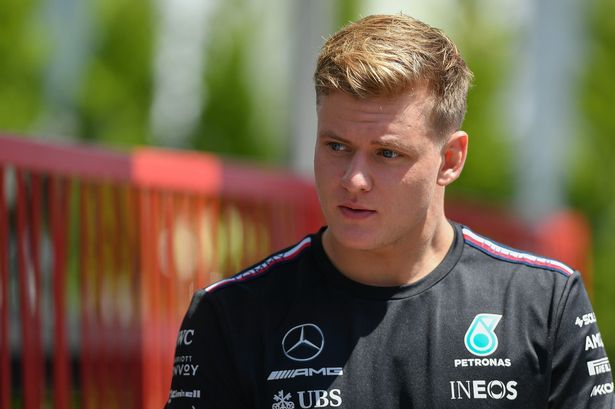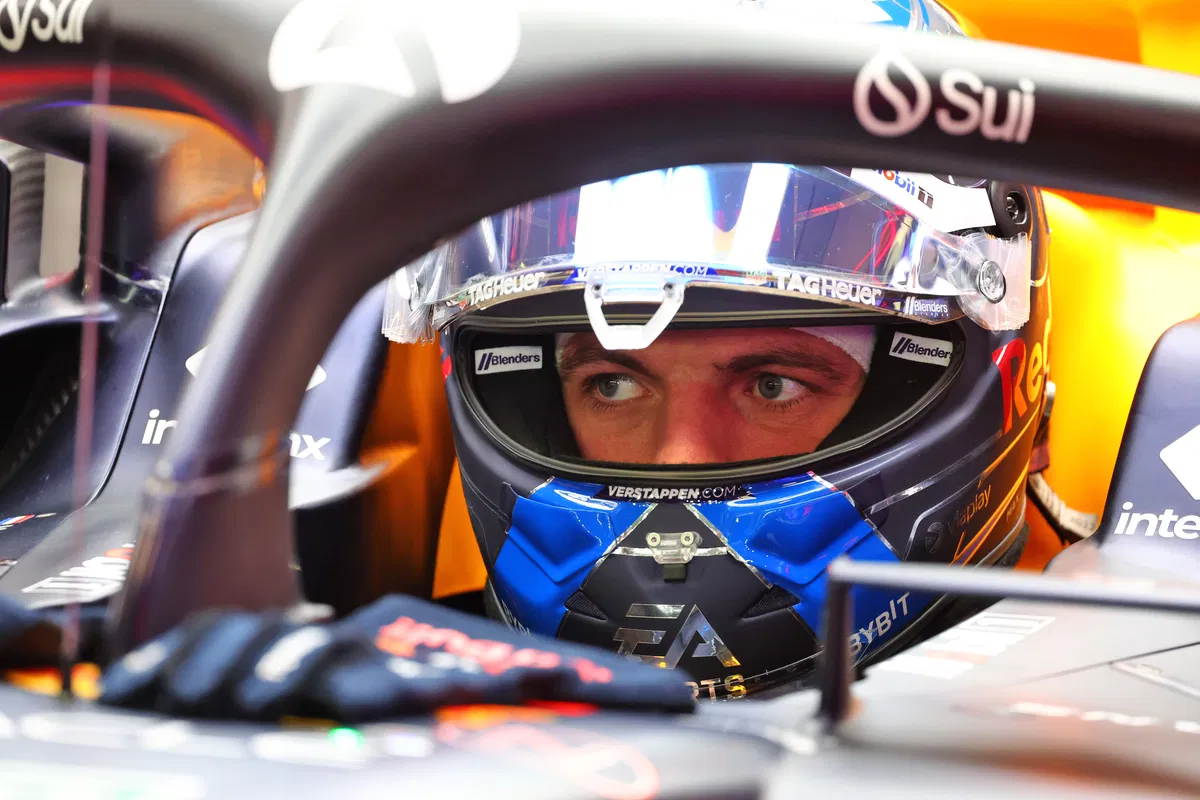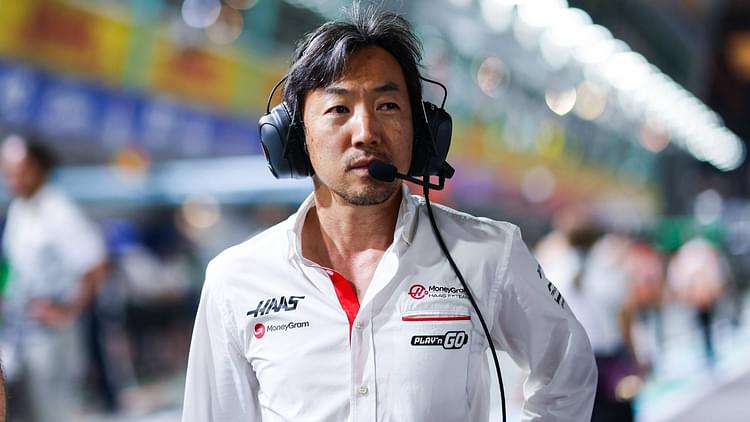
The departure of Mick Schumacher from Mercedes has been a topic of intense speculation and scrutiny ever since the young German driver was let go from the team’s reserve driver position at the end of 2023. Schumacher, the son of legendary seven-time Formula 1 World Champion Michael Schumacher, had high hopes of following in his father’s footsteps and securing a full-time F1 seat. However, Mercedes Team Principal Toto Wolff’s recent comments have raised more than a few eyebrows, claiming that Mick Schumacher’s career strategy “made little sense” and that his exit from the team was inevitable.
Schumacher’s journey through Formula 1 has been a complicated one. After a lackluster two seasons with Haas, where he showed flashes of potential but also struggled with consistency, Schumacher was brought in by Mercedes as a reserve driver for the 2023 season. It was seen as an opportunity for the young driver to gain experience, learn from the team’s successes, and potentially position himself for a full-time drive in the future.
However, Wolff’s recent remarks suggest that Schumacher’s exit from the team might have been a case of mismatched expectations. For fans, it’s hard not to feel that this is another instance of the son of a F1 icon being unfairly scrutinized and sidelined, but Wolff’s words indicate that there may have been more to the story than meets the eye.
The Departure That Was Almost Inevitable
In an exclusive interview, Toto Wolff didn’t mince his words when reflecting on Schumacher’s tenure with Mercedes. “Mick’s plan made little sense,” Wolff said, suggesting that Schumacher’s aspirations for a future Mercedes F1 seat did not align with the team’s long-term goals. “He wanted to position himself for a full-time seat with us, but we were clear from the start that we were fully committed to our current lineup,” Wolff explained. “Mercedes has one of the strongest driver pairings in Lewis Hamilton and George Russell. Mick needed to understand that and plan accordingly.”
While these comments might sound harsh, they are grounded in the reality of Formula 1’s highly competitive nature. Mercedes, a team that has enjoyed dominant success over the past decade, already has two highly capable drivers in Hamilton and Russell, with no immediate need to bring in a third. For Schumacher, this was a tough pill to swallow. It was clear that any move he made toward a Mercedes seat in the near future would have to be based on waiting for one of the current drivers to leave or for some unforeseen circumstances to arise.
Wolff went on to highlight the need for Schumacher to find a path that was more in tune with his own development, rather than focusing on securing a spot with a team that wasn’t going to change anytime soon. “There was no space for Mick in our lineup. He had to look for other options and build his career differently,” Wolff added, reinforcing the idea that Schumacher’s future would be elsewhere.
The Son of Michael Schumacher: Expectations vs. Reality
Mick Schumacher’s time in Formula 1 has been burdened with expectations far greater than most of his peers. As the son of Michael Schumacher, one of the most successful drivers in F1 history, Mick has often been compared to his father, and the weight of that legacy has loomed large over his career. While Schumacher had the talent to compete at the highest levels, his two years at Haas were marked by inconsistency, occasional errors, and a lack of podium finishes.
Some might argue that Schumacher’s early struggles were simply a result of being in a subpar car, but others believe that the pressure of living up to his father’s legendary status may have played a role in his inability to perform at his best. Wolff seemed to touch on this as well, noting that Mick needed to focus on building his own identity as a driver rather than trying to follow in his father’s footsteps too directly.
“F1 is about creating your own legacy,” Wolff said. “There was a lot of noise around Mick, but he needed to forge his own path, not just try to be Michael Schumacher’s son. People around him also have to recognize that this is a tough environment, and not everyone gets the same opportunity.”
The Bigger Picture: Mercedes and the F1 Driver Market
Schumacher’s exit from Mercedes raises important questions about the driver market and the limited opportunities available for young drivers in F1. The sport is currently dominated by a handful of top-tier teams, and breaking into these squads is increasingly difficult. With Mercedes firmly committed to Hamilton and Russell, and other teams like Red Bull and Ferrari locked into long-term contracts with their star drivers, opportunities for emerging talents are few and far between.
For Mercedes, Wolff’s strategy appears to be one of consolidation and stability. Hamilton and Russell represent the best possible pairing for the team in the foreseeable future, and Wolff has no intention of disrupting that balance. However, this leaves young drivers like Schumacher in a difficult position. The Mercedes F1 team, one of the most prestigious in the sport, simply does not have room for more talent, which puts immense pressure on up-and-coming drivers to either perform incredibly well in lower-tier teams or risk being left out altogether.
The Harsh Reality of the Modern F1 Environment
The reality of modern F1 is that driver opportunities are increasingly tied to sponsorship deals, team dynamics, and long-term contracts that are often non-negotiable. Mick Schumacher’s departure from Mercedes highlights just how hard it is for young drivers to break through, even when they have the family name and the talent to succeed. Wolff’s comments, while controversial, reflect the harsh truths about F1 and the need for drivers to make strategic decisions about their careers.
Mick Schumacher’s exit from Mercedes may have seemed inevitable given the team’s current structure, but it also underscores the broader challenge young drivers face in F1. While Schumacher may not have made a strong enough impression to secure a future at Mercedes, his journey is far from over. For now, it remains to be seen where he will land next, but one thing is clear: the road to success in Formula 1 is far more complex and unforgiving than many fans and pundits may realize.
Conclusion: The Bitter Pill of Reality
Toto Wolff’s remarks about Mick Schumacher’s departure may have stirred some controversy, but they serve as a sobering reminder of the ruthlessness of Formula 1. The sport is not just about talent—it’s about timing, strategy, and sometimes, simply being in the right place at the right time. Schumacher’s plan, in Wolff’s eyes, may have made little sense, but in the cutthroat world of F1, sometimes a driver’s future depends on much more than skill.







